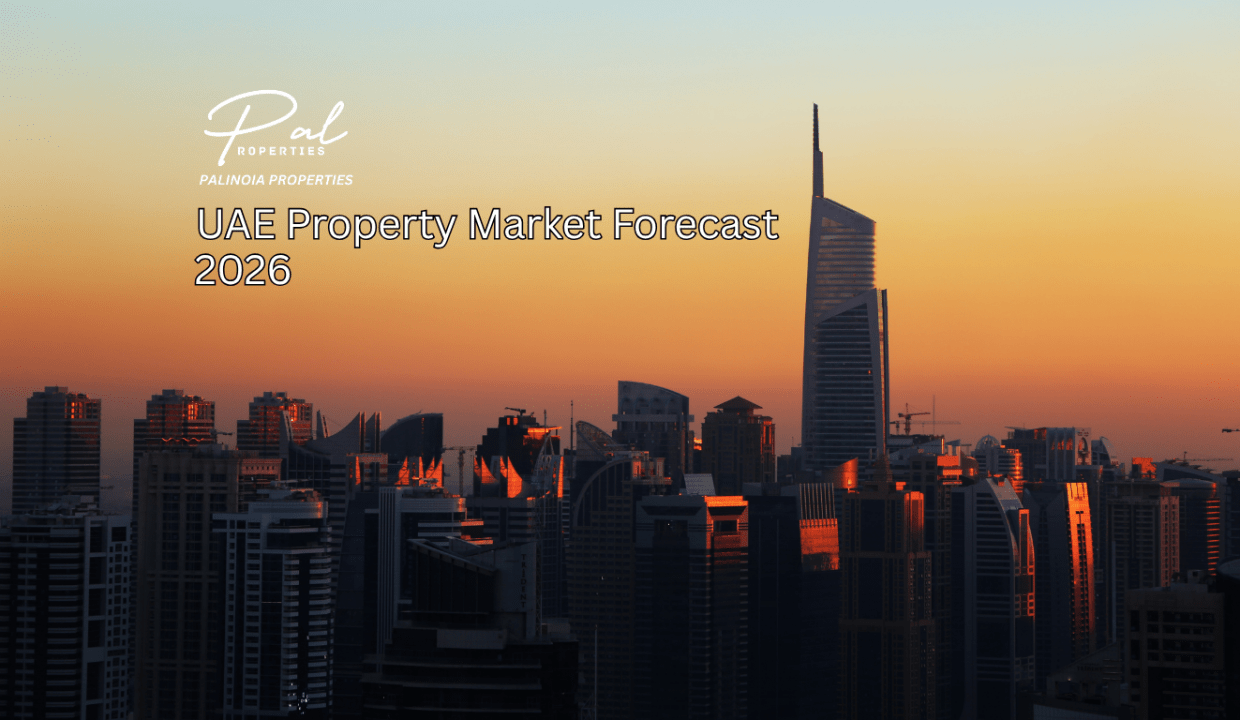UAE Real Estate Forecast 2026: Price Trends, Supply Surge & Investor Insights
Introduction
2026 is set to be a pivotal year for the UAE real estate market. After several years of rapid price growth, driven by investor demand, favourable visa policies, and strong infrastructure development, the market is entering a phase of moderation. In this forecast, we explore key trends, risks, and opportunities so that buyers, investors, and renters know what to expect.
Key Drivers & Trends to Watch
Supply Surge
- Roughly 150,000-250,000 new housing units (apartments and villas) are scheduled for delivery between 2025-2027.
- 2026 itself is expected to see a major handover wave — some reports say around 120,000 units delivering.
- This large increase in supply is likely to outpace population growth, causing a more balanced market, especially in apartment segments.
Price Correction & Moderation
- According to Fitch Ratings, property prices in Dubai could correct by up to 10-15% in 2025-2026.
- Moderation more than crash: the market isn’t expected to collapse, but growth is likely to slow, and some price softening may occur, especially in non-prime districts.
Resilience in Luxury & Prime Segments
- Villas and luxury properties in prime areas (e.g., Palm Jumeirah, Emirates Hills, Dubai Hills Estate) are expected to remain more resilient because supply is more limited there and demand remains strong.
- High-net-worth investors still prefer premium finishes, large spaces, and exclusivity — these features will preserve value better.
Increased Demand for Off-Plan Properties
- Off-plan housing remains attractive due to lower upfront payments, flexible payment plans, and potential capital appreciation.
- Major new developments in Dubai, Abu Dhabi, and emerging emirates will continue launching off-plan projects to meet investor interest.
Rental Market & Yields
- With more supply coming for apartments, rental rates may start to stabilize or grow less aggressively. Some cooling in yields is expected.
- Prime locations will still command higher rental yields; however, in more saturated areas, tenants may have more choice, giving them bargaining power.
Regulatory, Economic & Demographic Factors
- Population growth, especially via expats, continues to be strong, pushing demand.
- UAE’s economic outlook is positive, with GDP growth expected, and government policies such as visa reforms, freehold ownership, tax incentives continuing to support investment.
- Smart & sustainable buildings, green infrastructure, and tech integration (PropTech) are gaining importance among buyers & developers.
Opportunities
- Buyers who have good timing and select prime locations may find entry points during market correction.
- Investors in luxury villas or high-end branded residences may see better long-term capital retention.
- Developers who focus on sustainability, smart homes, and lifestyle amenities will attract premium buyers.
- Areas with planned infrastructure expansion and upcoming mega-projects will likely perform well.
- Off-plan investments with strong reputations and flexible payment terms could be advantageous.

